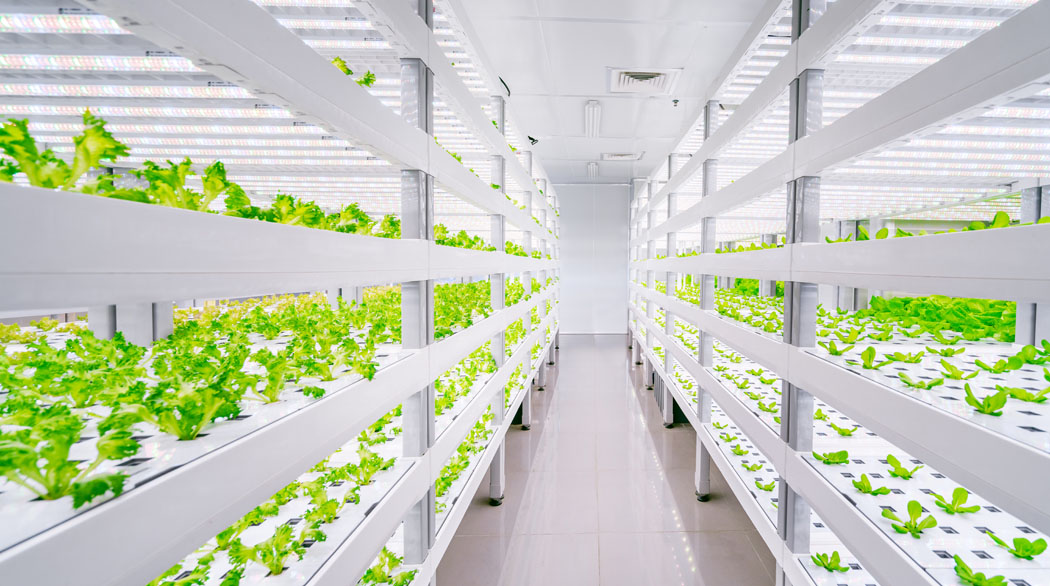
A Scenario for the Future of Food for Well-Being
Food is essential to the sustenance of all living organisms. For humans, however, food is not only a source of nutrients: it enriches both mind and body, often helping us to bond with others. In fact, our physical, emotional, and social well-being largely depends on food. This is why the growing threat to food security is so disconcerting. Given the worldwide trends of population increase and economic growth, global demand for food will keep rising, so the securing of stable food supplies is now an urgent social issue. There are some glimmers of hope, however, as efforts are emerging to optimize systems for the production, distribution, and consumption of food. The hope is that the food value chain will be optimized for consumers, enabling everyone to establish their own eating approach while maintaining and improving their health.
Securing Stable Food Supplies and Optimizing Healthy Eating
― Achieving an affluent life for all
Food insecurity is a global issue for which no effective solution has yet been found. According to The State of Food Security and Nutrition in the World 2021 report jointly published by The Food and Agriculture Organization of the United Nations (FAO) and several other international organizations, more than 30 percent of the world population was affected in 2020 by moderate or severe food insecurity, which is the level at which people either face uncertainties about their ability to obtain food or have likely run out of food.
The United Nations has designated "zero hunger" as its second SDG and states the first target of this goal as follows: "By 2030, end hunger and ensure access by all people, in particular the poor and people in vulnerable situations, including infants, to safe, nutritious and sufficient food all year round." Specific measures to attain this goal include development of technologies to increase agricultural productivity, adjustment of supply and demand to limit food price volatility, and ensuring proper functioning of food commodity markets.
Some people have a reassuring vision for the future in which global food systems will continue to be optimized. Just as medical practice is being transformed with the introduction of personalized medicine and smart healthcare, food systems can be improved through such means as personalized food services (tailored to individual health conditions and preferences) and new food value chains enabled by the food tech revolution.
To achieve an affluent life for all, it is essential to resolve food insecurity and optimize food systems to ensure dietary well-being.

"One cannot think well, love well, sleep well, if one has not dined well."
- "A Room of One's Own," Virginia Woolf, September 1929 essay
One of Yokogawa's three sustainability goals for the year 2050 is to ensure well-being and promote quality of life for all. Improving food systems is a key focus of this initiative.
Co-innovation for a Food-Autonomy Society
― Yokogawa's scenario for the future of food
In an uncertain age when the future is murky, we must share our values and visions with customers and suppliers to swiftly co-innovate future-focused solutions to social problems. We at Yokogawa believe co-innovation starts with the earning of customer and client support by presenting a blueprint for the future that will prove beneficial for all. Accordingly, we have reviewed our previous and potential contributions in the food sector, explored business opportunities, and drawn up a scenario for what we would like to achieve based on our blueprint for the future of food systems.
Over the years, Yokogawa has been providing its customers in the oil & gas, petrochemical, materials, and food & beverage industries with a wide range of solutions that support both management and operations. Yokogawa has built a solid track record in helping its customers maximize quality and reduce costs through the provision of quality assurance, process optimization, and other solutions. By sharing with our Group companies around the world the knowledge and experience that we have acquired in Japan, we are expanding our activities in these fields.
One of the solutions we are developing for the food & beverage industry is a bio contamination management system that uses a highly sensitive Yokogawa fluorescence technology. While the food & beverage industry is striving to improve hygiene management, food recalls and food poisonings still occur due to foreign substances and microbial contamination. Tests for microbial contamination take especially long to return results, so it is difficult to prevent incidents by timely feeding back the test results to the manufacturing process. Yokogawa has developed a prototype of a microbial genetic testing device that can obtain results sooner, and is conducting proof-of-concept tests with actual foods and beverages. Once this concept is verified, this solution will detect microorganisms much more quickly, improving food safety and reducing costs.
Yokogawa's value creation challenges for the food industry also extend to areas other than food processing. In a plant factory1, for example, our solutions optimally control the environment―light, temperature, humidity, and more―to assist the stable growth of healthy crops. We also conduct research to secure the harvests of crops at such facilities and prevent damage from insects, diseases, and disorders such as tipburn. This research uses machine learning and image recognition technology to create predictive models from plant physiology and image data measured after seedlings are planted, as well as plant factory environmental data, to derive optimal environmental conditions for each variety. Implementing the suggested environmental conditions at a given facility increases the probability of a good crop-yield.
1. A plant factory is a facility in which high-quality plants are grown year-round by artificially controlling the cultivation environment.

Through these efforts, Yokogawa is taking on social problems associated with food systems. Our ultimate goal in this field is to attain a food-autonomy society in which food production and transport are automatically adjusted to suit individual requirements for health and well-being. Enabling such a society requires new value chains that capture data on consumer food preferences and consumption to determine the optimal production level. This cannot be achieved by any single organization. Instead, it requires a co-innovative approach involving all relevant parties in a society.
Drawing on our systems integration and engineering capabilities cultivated in diverse industries, we at Yokogawa are pursuing co-innovation to deliver technologies and solutions needed for this blueprint, as envisioned in the above-mentioned scenario, opening the door to well-being in the food field.
Furthermore, as depicted in our scenario, we believe well-being can be assured by improving food systems in cooperation with customers and suppliers. Reaching this goal also requires the solution of environmental and social issues through co-innovation in the food industry and other industries. By working together, we will create new value that promotes well-being in a holistic manner.
Yokogawa's Blueprint for the Future of Food for Well-Being
We envision a food-autonomy society in which everyone‘s dietary needs and wants are met for the enhancement of well-being. To find out more about Yokogawa’s blueprint for future food systems, please access our Food for Well-Being website.
References
"The State of Food Security and Nutrition in the World 2021." FAO, IFAD, UNICEF, WFP and WHO. July 2021.



